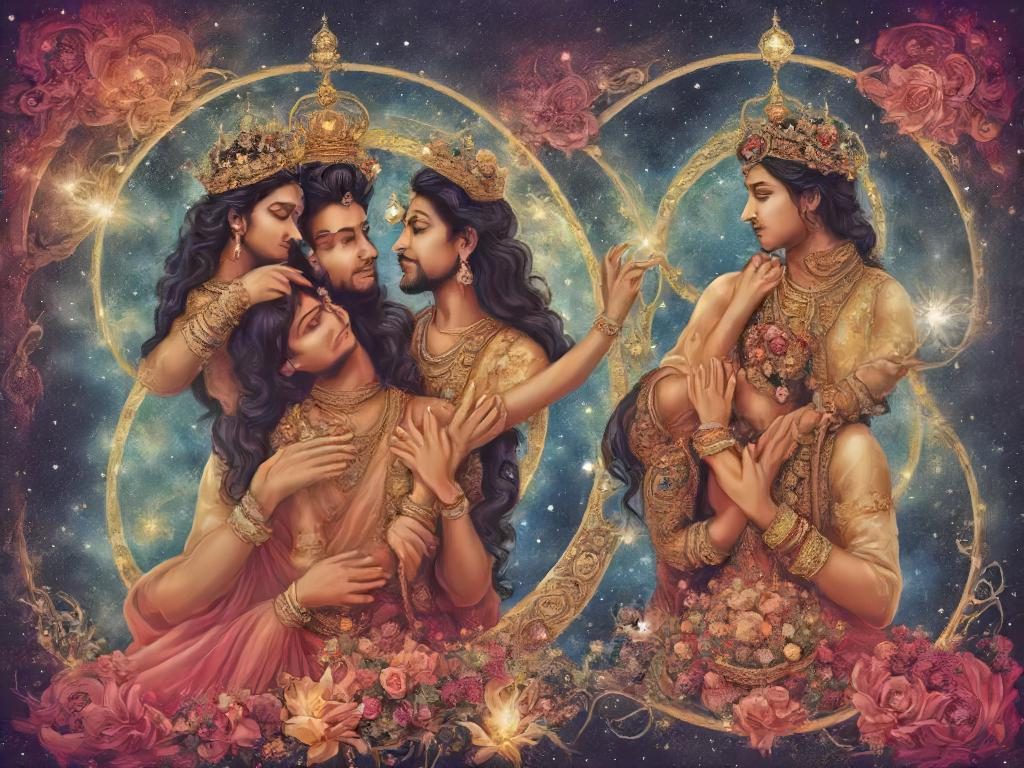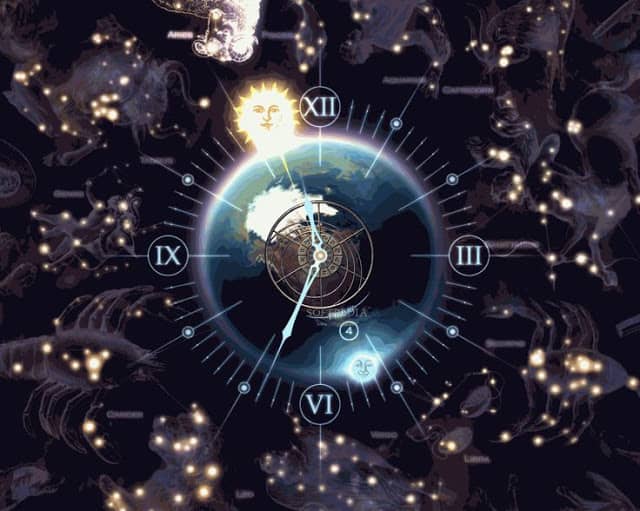Rinanubandhan part 2: Understanding Marriage, Karmic bonds and Soulmate relations astrologically
Introduction
The concept of karma, rooted in philosophical and spiritual institutions, is the belief that our actions, intentions, and ideas have repercussions that affect our experiences and future ones. The concept of runanubandha, a term originating from the Sanskrit language, suggests that we are connected to others due to the repercussions of our past actions. These ties have a significant impact on our current situations and relationships.
Karma is not just about punishment or reward, but rather a natural rule that operates unbiasedly. Samskaras, impressions or imprints created by our actions, intentions, and thoughts, build over time and have an impact on our future experiences. Good actions and intentions lead to positive results, while bad actions and intentions lead to negative consequences.
Rinanubandhan or Runanubandha expands on the idea of karma by implying that we are connected to others through a complex network of karmic relationships. These relationships can be either favorable or negative, depending on the nature of our past actions. Understanding and accepting these connections can provide insights into the patterns and dynamics of our interactions, enabling us to make conscious decisions and build a more satisfying and meaningful life.
In this blog post, we will be focusing on explaining the concept of rinanubhandhan or rinanubhandha based on the concepts of Nadi astrology and the Jamini system in detail based on the case studies.
Summary from previous Article
Karmic connections play a crucial role in our lives, allowing us to accept responsibility for our actions and the results they have produced. Acknowledging these connections helps us break away from destructive behaviors and cycles, making conscious decisions that align with our goals and ideals. By cultivating good acts, intentions, and ideas, we can realize a more harmonious and meaningful life.
Understanding karmic ties and the concept of runanubandha provides insights into the interwoven nature of our lives. By understanding our karmic ties with others and the repercussions of our actions, we can make conscious decisions and build a more satisfying and meaningful life.
In the Mahabharata, Bhishma and Arjuna discuss their karmic ties, which can manifest in various forms such as revenge, love, or hatred. Runanubandham, or “karmic relationship with them,” is the format in which one must pay off their karmic obligation.
In the past, actions have resulted in everything, and actions carried out in the past can bring about positive or negative outcomes in the present. For example, making charitable contributions in the past can lead to wealth and happiness in the present. Sadhus, or saints, practice nonviolence, donate to charitable causes, respect gurus, and serve elders and visitors to enjoy their next death.
The story of Karama explains that a person’s birth is determined by their karmic actions, which accumulate over time and form the basis of their next birth. After death, the soul gathers all accumulated karamas, which are later taken by God to form a new karmic seed in the form of body. If a person has done good karmas with others, they may get a godly body in heavens, and then take birth in learned, religious, and dutiful families. If they have done bad karmas in past life, they go to the lower wombs of birds and animals, exhausting bad karmic seeds and taking birth in families with bad pending karmic deeds.
The Law of Karama and Runanubandhan, as per Bhagwat Gita, further justify the Laws of Karama and their connection with the Runanubandhan Theory. The theory suggests that karmic debts become the seed of our many births in any given life cycle. The concept of karmic action is not an inviolate engine of cosmic punishment but a neutral sequence of acts, results, and consequences.
The Padma Purana, one of the eighteen Mahapuranas, discusses the concept of runanubandha, or the cycle of indebtedness, which suggests that every human being is connected to others through a complex network of debts and responsibilities accumulated over several incarnations. These relationships can have either positive or negative consequences and impact our lives. The Padma Purana emphasizes understanding and resolving these karmic debts to achieve spiritual emancipation.
Vedic scriptures, including the Vedas, Upanishads, and Puranas, provide profound insights into the nature of existence, life purpose, and the interconnectedness of all beings. They are deeply woven into the fabric of karma and rebirth, providing a deeper understanding of the universe and the role of actions in shaping destiny.
Karmic relationships are deep-rooted, emotional-draining, and dominating relationships that are formed to repent, heal past life lessons, and ease pain. To break free from these karmic bonds, one must improve their strength, broaden their perspective, and develop their spirituality.
To understand and cure a karmic connection, one must devote significant time to self-realization or evaluation. It is essential to recognize the patterns of karmic relationships and avoid jumping into new relationships without fully understanding the relationship’s pattern. Resolving the errors made in previous relationships is crucial for healing and overcoming karmic misery.
Karmic lessons and patterns of falling in multiple relationships can be broken down through spiritual growth, leading to a one-way flow of free energy. After breaking the pattern of karmas, learning, suffering, and mending the karmic tie, genuine love soulmates can be achieved. These connections bring attention to shame, remorse, and unresolved grief from previous incarnations. Astrology can help understand the concept of “Runanubandha” or Karmic relations between two people through Jamini and Nadi systems.
Soul mates are significant relationships in our lives, such as family members, close friends, or romantic partners. They have different purposes and profound lessons associated with them. Soul mates can assist in developing deeper love and knowledge for one another, gaining insight into universal truths, or learning challenging lessons in life. Understanding other people’s souls as “mates” can lead to a complete transformation in our perspective and relationships.
The deeper meaning of “Runanubandha” is that we carry certain karmas and exhaust some, while leaving others behind for the next incarnation. Sri Sri Ravishankar’s view on the concept of Rnanubandhan suggests that we encounter various people during our life, including parents, siblings, spouses, and children. Each karmic obligation, or Rina, results in bondage or attachment with the others we interact with. According to the principles of the Bhagavad Geeta, these karmic attachments will drag us into the wheel of life until we exhaust them.
Runanubandha is the bond of karmic activities that occurred in previous births, which are the outcome of karmic debts at the base of the repeated lives we participate in within this cosmic cycle. The memory of those karmic deeds is stored in our soul, or astral body, and there is a connection between the soul and all of the memories. In this life, the person or soul to whom you have done anything in a previous life will be your debtor or creditor. If you have taken anything in the past, it will be taken away from you in whatever birth that you take.
The astral body continues to store the memories, sorrows, and joys of all of the Runanubandham relations in countless incarnations. There is no use in attempting to break free from the cycle of birthing unless all of the karma stored in the soul body is either burnt away or exhausted by the physical body. According to logic, we are recollections of the runanubandham that occurred throughout each and every incarnation, and the numerous karmas that we do in each connection are a reflection of some kind of runanubandha.
Sadguru Ji has stated that sexual relationships have the greatest impact on our lives in terms of the amount of memory or subconscious impression they leave in our minds as compared to any other kind of touch or any substance you come into contact with. In order to get a complete grasp of Runanubandhan, it is essentially the physical memory that is connected to the soul that we carry from.
Previous article can be read from below link to understand concept of the Runanubandhan theoretically :
Runanubandha part 1: Soulmates, Karmic Ties and Concept of Rinanubandhan in Vedic Astrology
Runanubandha part 1: Soulmates, Karmic Ties and Concept of Rinanubandhan in Vedic Astrology
Rinanubandhan part 2: Understanding Marriage, Karmic bonds and Soulmate relations astrologically
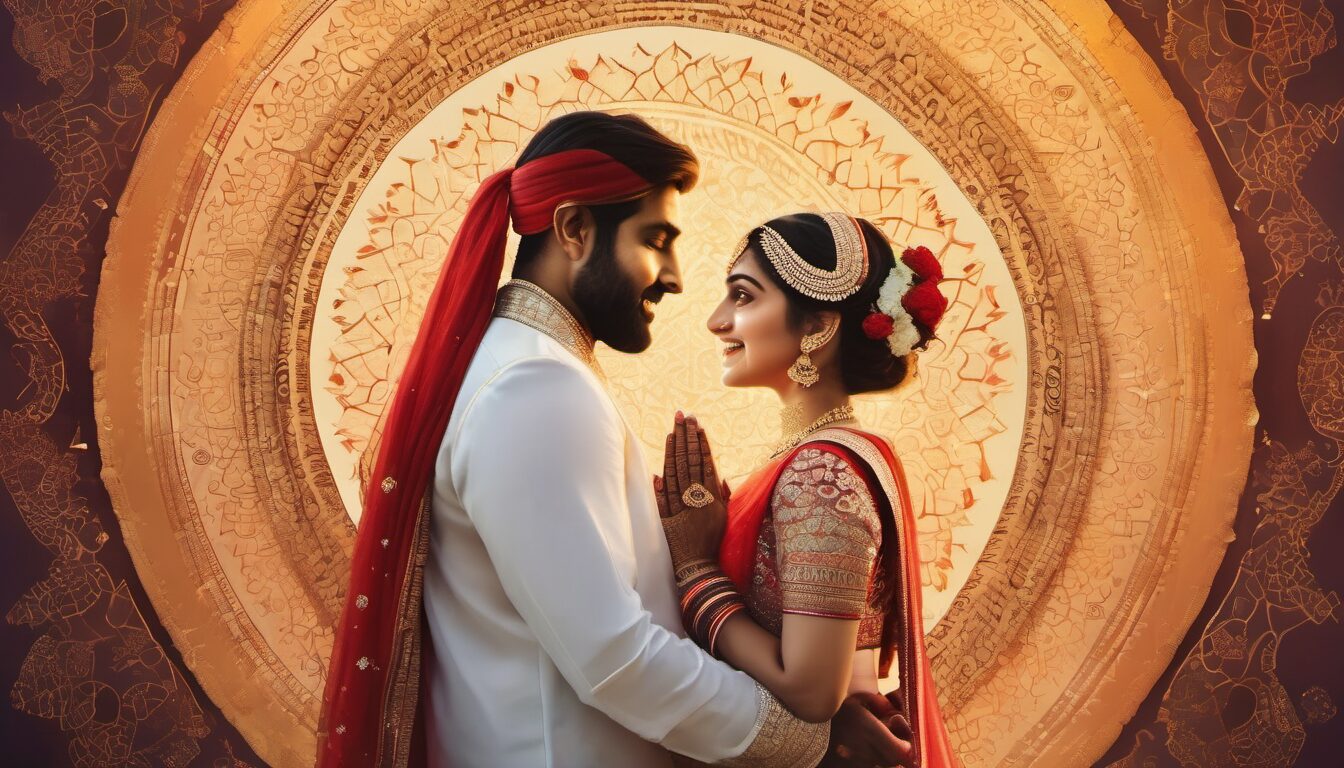
As we studied in the previous post, what actually is Rinanubandhan and how is it connected with every life we are part of and how each and every relation always shows some sort of pending karmas with every relation? If we want to understand the karmic theory theory, we must study all the factors of the bond of past birth karmic actions that result from karmic debts at the root of the repeated lives we take in this cosmic cycle.
Numerous karmas that we are doing in our day-to-day lives lead us to many “Rina,” and this Rina further leads to karma again. If you have given or done something to someone in a past life, your soul (astral body) will store the memory of those karmic actions, and your soul will attach itself to all these memories. The person or soul to whom you have done something good or bad will be your debtor or creditor in this birth.
Astrological observations : The Rinanubandhan
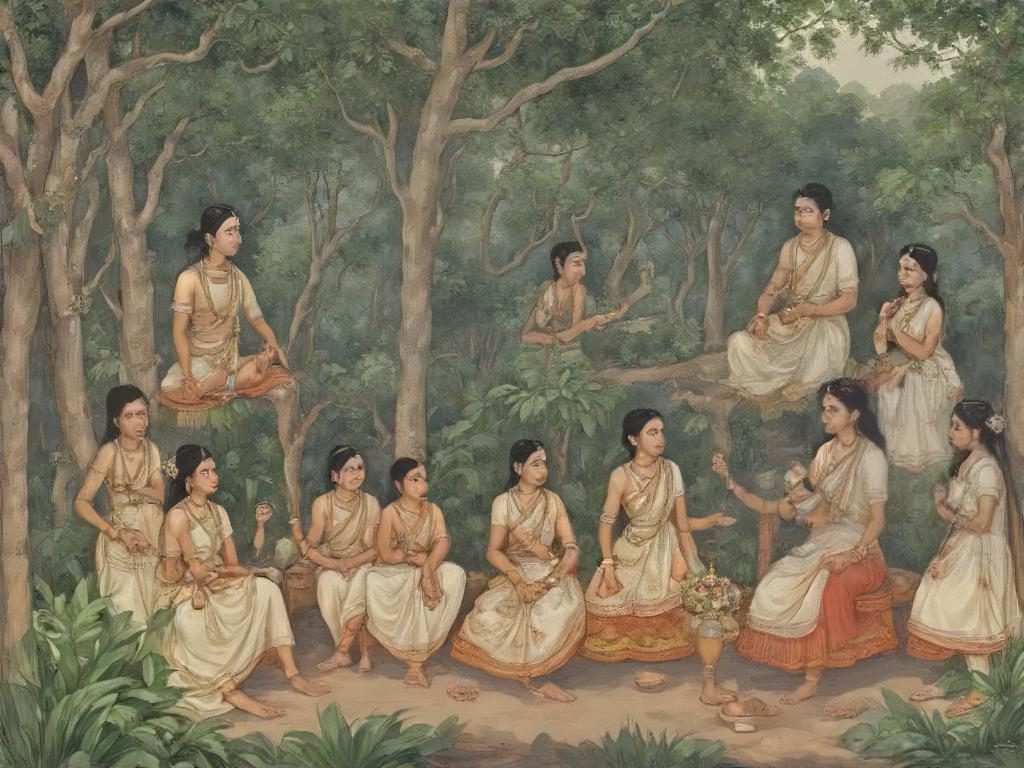
Based on “Karama and Rebirth In Hindu Astrology” as Explained by K.N Rao, Natal chart and rest of Divisional charts clearly shows the Bonds and linkage of the family members we are born into (D1, D9 (Spouse),D12 (Parents, Ancestors), D3(Siblings) and D7(Children’s).
For e.g 7th house/lord of the D1 and D9 Shows connectivity of both the couple and it should be examined thoroughly to see the Karmic connection between two of them, for deep connection one should analyze or Match Up-pada Lagana of both the charts to see the soul connectivity.For Shorter, casual flicks, Living-Relations, one should analyze A7(Dara-pada) Arudha/Lord of both the couple charts and their relation or influence of planets on A7, It should show connectivity and sort of sexuality or sort of infatuation one have for other one or partners he or she meets.
Moreover Relationship of Both the Venus and Rahu over each other natal placement in two charts also shows the Stronger Attraction or connecting point between two people i.e Rahu over Venus, or Venus over Rahu in any of the chart (either Husband or wife or Gf or Bf, or people of karmic attraction) shows one cannot resist each other attraction or it’s very hard for both couples to stay away from much longer period. Rahu aspects the Same sign where other person Venus is placed also shows the Same scenario of uncontrolled desire and passion for each other or strong karmic connection.
Placement and Transit of Mars and Venus over Other chart sign (Where their Mars or Venus placed) also shows where and one can meet each other, shows what is the point of attraction or what made them attract each other.transit of Mars over Venus shows when can one meet his love of life.
5th house/Lord of the Husband and wife shows what could be their future life wrt to children’s well-being.4th House/Lord of both the charts show how they live in next house with family members; Happily or it would be a path of cactus.Because of the Runanubandham we born in a family falls in close relations, having close friendships, love other people and shares much close bonding between them.
Below are the points explained by Rao sir based on the Padma Puran:
1) Those who have given Loans in the past life become our Relations in the present birth.
2) The Spouse, The Parents, Siblings, Relations, Servants all are born as a result of the Rinanubandhan.
3)Each one of the relations born according to the Motives of capturing karmas of the present life soon after the death. In the Present birth When he gets that motive fulfilled, after giving terrible pain, departs and leaves a karmic impression in the mind of the native.
4)He Who Lost his property through deceit in the past birth is born as the handsome and accomplished son in the present birth and after inflicting terrible pain goes away.
5) He who takes Loans from others and dies without discharging it takes his birth in that family as a father, brother, wife or friend etc. His behavior is evil. He treats everyone badly, Speaks harshly and enjoys harshly and enjoys life at the cost of others.
6) Bad Children’s behaves like an enemy, hates his parents, makes fun of them, criticizes them, after this marriage, he swindles his parents also.
7) Good children’s obeys his parents from his Childhood, after growing up he keeps remembers to look after his parents, talks sweetly to them and keep them happy always.After the death of the parents, he performs all such rituals i.e Sraddah to give them happiness even in the world to which they have departed after death.
Astrological Understanding on the concept of Rinanubandhan (The Karmic Bonds: Marriage, Relationships, Kids etc)
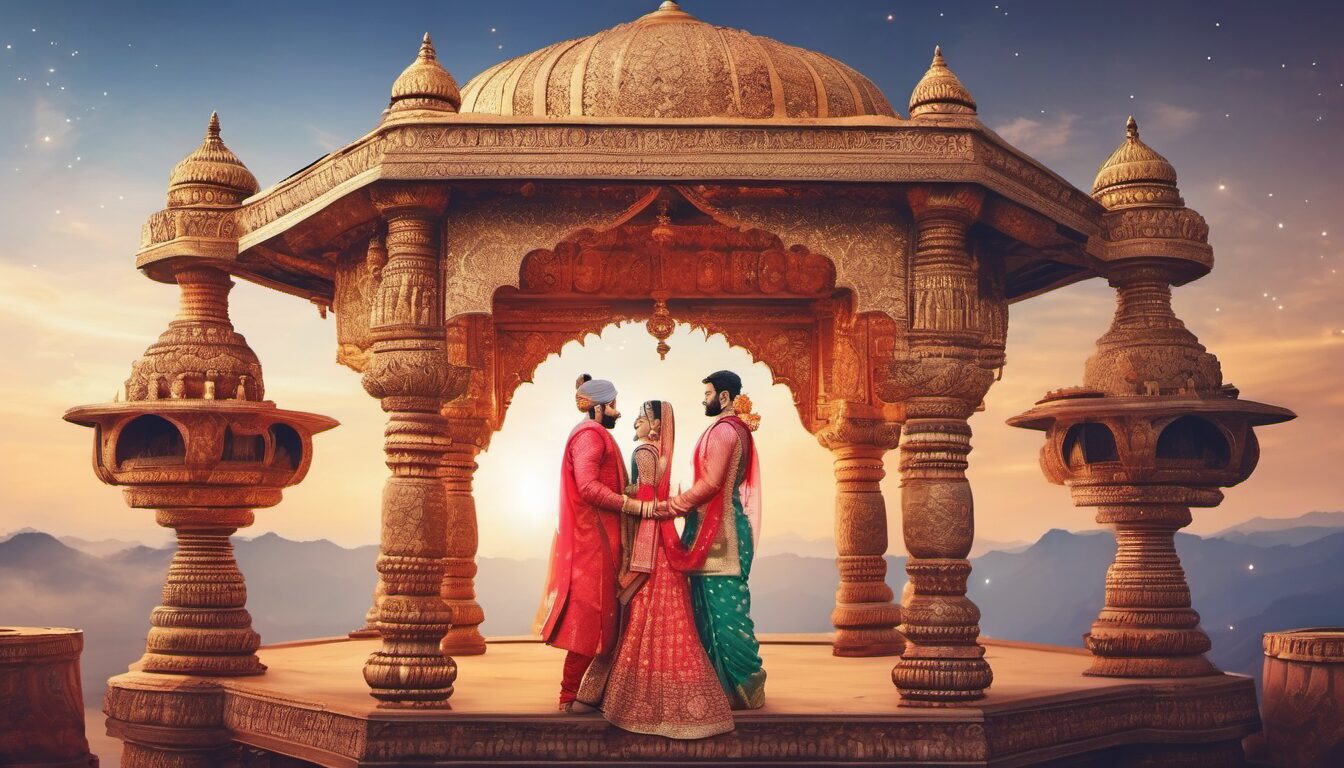
Astrologically speaking, to understand runanubandham and karmic relations between two people, we need to first understand the karka of the planets responsible for karmic linkage and bondages, i.e., Venus, Rahu, Saturn, and AK, and the darakarka connection between two people in the natal/navamsa chart.
Venus’s alignment in two charts with Rahu, Mars, and the Darakaraka planet/Lord reveals the traits, essence, and soul of the partner we seek from the past, or it could influence us due to soul-level connectivity.
Any planet with a lower degree in the chart, such as the Sun, Moon, Mercury, etc., can be Darakarka, and the house Darakarka resides in reflects the lessons and learning associated with it. If nodes or other separative planets negatively impact DK, it can reveal the extent of our suffering and the lessons we might learn from our partner, including financial, relationship, and sexual aspects. Any chara karka in any chart serves to filter the characteristics of the house or planet over time for a higher purpose.
The 7th house/lord planet in the Navamsa chart provides deeper insights into physical characteristics and compatibility between two individuals. For instance, a planet in the D9 7th house can establish a connection with the partner’s lagana and characteristics. When Mercury lands in the husband’s D9, 7th house, it implies that the wife possesses profound abilities, traits, and a complexion that mirrors mercurial qualities. The wife might be very skilled, communicative, and stout. Mercury may influence a woman with a wheatish, greyish, or dark complexion, or lagana.
Chara Karka Principals, DK Being a Lagnesh and 7th Lord will always be a learning lesson for the native if he fails to understand the actual meaning of DK. Usually, I have seen When DK is the 7th Lord, natives usually have distorted ideas with respect to sexuality and spirituality. Native might have difficulty understanding what an actual is; either he refrained from getting intimate with the partner or he feels that the bond of marriage is very pious and very spiritual, and in the reverse case, Native is too attached to the idea of sexuality and libido; this somehow indicates the level of lessons and sufferings via partnerships and other partners.
If DK As a native of Lagnesh, he or she may receive spiritual lessons from their partners, which aid in understanding the true significance of relationship bonds. Karka’s purpose is only to filter the native’s soul in the right direction to heal or release the pain of karmic bonds.
Whether AK is associated with malefic, the 7th Lord, or retrograde, it’s a clear indication that the intensity of relationship suffering will increase due to overindulgence in sexual relationships or a higher libido during marriage, regardless of the gender involved. Typically, these individuals believe that marriages and relationships solely serve to satisfy their sexual desires. If they couldn’t find a relationship that satisfied their senses, they continued to enter other relationships until they found satisfaction, which led to numerous disturbances in their karmic energies due to multiple sexual relationships before and after marriage.
According to my personal experience, a deeper emotional connection with someone you’ve met or interacted with doesn’t necessarily indicate that they are your soul mate; it’s merely a karmic bond. The reason you feel a strong connection with them could be because they share the same Atma Karka, meaning both the girl and the guy have the same AK in their natal charts. This clearly indicates that the guy or girl is your true soul mate; it’s merely a karmic bond, and your strong connection with them may stem from the shared Atma Karka, where both the girl and the guy have the same AK in their natal charts. This clearly signifies the connection between two souls from previous lives. If Guy AK is lord of the 5th house and Girl AK is lord of the 7th house, then the level of bond will be very strong, and if it is afflicted, it can show suffering. If there is no affliction, it can indicate a durable karmic bond, provided the debts remain unfulfilled.
When one person’s AK aligns with the UP-pada lagana, or Lord of the other, in their natal chart, it signifies a true spiritual relationship. If both of the couple’s laganas fall in each other’s UL, it clearly indicates that they are meant to be together. They will understand each other on a soul level and contribute to the karmic uplifting of their karamas.
The strength of the A7 (Dara-Pada) lord in the D1 and D9 charts indicates the possibility of multiple relationships before marriage. If the A7 (Dara-Pada) lord receives aspects from multiple planets, it indicates that natives may enter into multiple relationships, but it’s not certain that all these relationships will be sexual or karmic.
If the A7 Lord is in a relationship with the 7th House or 7th Lord, or if the 7th Lord is aspecting the 7th House or UL, then the marriage would solely be motivated by physical or sexual gratification.
If A7/Lord is having a mutual relationship with the Arudha Lagana (AL), the native will interact with a number of people of opposite sexes, but it is not sure that the interaction will be physically oriented unless and until both the lords have a link with the 7th house or lord.
If A7 and UL both are somehow interconnected in D1, it clearly shows a love marriage between two people, but the longevity of the bond will only be dependent on the strength of the 2nd Lord from UL in the D9 and D60 charts.
The presence of the 7th Lord or Venus in the 7th House also indicates a tendency to form relationships solely for the purpose of satisfying a higher libido or sexual gratification, particularly with those who fall within the close friend circle.
Connection of the 11th Lord The planet associated with the A7 indicates the type of connection that fosters intimacy, such as Venus, which symbolizes bonding with friends during parties and social events.
Same-way, if we see the root cause of any relationship, in deeper reality, any long-lasting and deeply rooted relationships or marriage relationships are the fruits or results of our good Sanchit (9th house/lord) and bad Prarabdh (6th house/lord) karmas we perform in earlier births, those we take in the cosmic cycle of birth system.
Based on these accumulated karmas, we either enjoy (Punya karama, 5th house; kids, if 5th house is well placed or somehow connected with the 9th/9th lord) these relations, or we realize or suffer (in that case, the level of karmic suffering would be seen in the D30 chart, and the lord of 6th/8th of d1 in D30 shows the deep-rooted issue and level of sufferings) on account of those relations based on good or bad deeds we had done in the past
If you have performed good Karamas in your previous birth, your marriage will be extremely fruitful. This outcome is also reflected in the D9 (Dharamsa—Fruits of Sanchit and Dharama related to marriage and relations) and D60 (Past Karmic Actions) charts. The D9 (Dharamsa—Fruits of Sanchit and Dharama related to marriage and relations) and D60 (Past Karmic Actions) charts also indicate that marriage will bear the greatest fruit.
If the relationships are fruitful, Venus (in male charts) and Jupiter, Mars, and Darakarka (in female charts) will be free from any affliction in D9 or D60 charts.
Often, if Ak has severe node affliction and is in some way associated with Venus or Darakarka, the relationship will be intense and may indicate suffering.
If you have done anything bad to any men or women in many of your past births, in the current birth chart, the 6th House and the 6th Lord in D1 will be most afflicted and somehow connected with DK, AK, UL, or the 2nd from UL, and you will always try to disturb the marriage in any way.
Whenever 6th lord makes any relationship or influences the 7th house, 7th lord, UL/lord (Up-pada Lagana) or A7/lord (Darapada) in d1 chart and other marriage supporting housings, natives either will face delays in the marriages, suffer, or if somehow native falls in relation to love or close bonding, the relationship will be like a path of cactus or the level of suffering in that relationship will be intense or severe and can be soul-revealing. In extreme situations, nodes strongly influence AK and establish connections with DK, Venus, UL, and A7.
In many of the cases I have seen, if AK is deeply afflicted or in some way connected with suffering (8th lord) houses, lords, or nodes, or has some relation to either Venus, UL, or A7 Arudha, it can also show problems after getting into a relationship. The sole purpose of all is to realize the soul, the lesson of past karmic actions, or the pending karamas and move forward after the pain and guilt to realize that you too must suffer. Karmas’ role is to always realize or teach the soul’s suffering, thereby fostering deeper spiritual growth in this current birth.
Some souls fall due to their sufferings, while others transform them into new beginnings of spiritual life.
You can verify this by examining the D9 chart and the strength of Ak. If Ak is deeply connected to malefic planets or nodes or placed weakly in trik Bhavas from Lagana of D9, it clearly means that the soul will be suffering a lot and that the person will have to go through a lot of pain because of bad deeds they committed in the past. It is also possible that the person will go back to a previous birth until he understands what lessons are all about, since Ak is weakly placed and debilitated. Debellation shows the Tamao Guna nature of the soul, which means negative karmic actions in this birth.
The native has a clear choice is clearly in the hands of the native as to what he wants to achieve from that suffering—rise from it or fall from it. This clearly suggests one has to pay back its karma in any form, either in this birth or in the next birth, if somehow one is able to carry forward it to the next with the blessings of seers and divine souls.
Sanchit karamas primarily classify good karamas, while they also classify bad karamas, but their level of outcome differs significantly. The effects of Sanchit karma can manifest at any point in your life, provided that it is supported by good dashas and transits. The result of Sanchit karma may manifest during your pre-marriage life or after your post-marriage life. It solely depends on the transits of slow-moving planets with dashas in the 6th, 8th, and 12th houses, or on nodes in those houses that have a connection to past actions.
Case Study I: Male Chart | Female Chart – Irony in Love Life and Karmic Debt
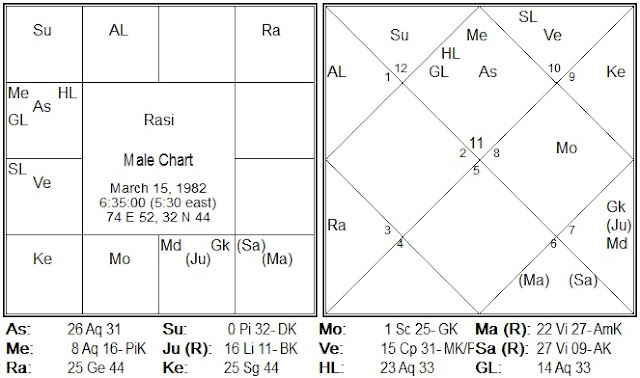
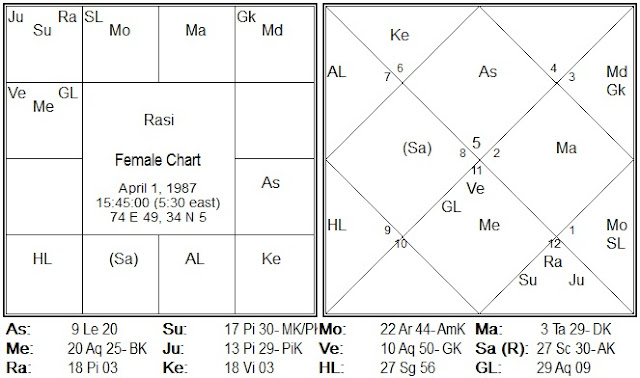
Astrological Analysis :
The concept of Runanubandham and the karmic debit are clearly visible in both charts. Past Birth Karmic Rina starts when Native (Male Chart) Venus Vimsottari Dasa started after November 2006, and exactly during the End of Moon Pratyantar (PD) Dasha (6th Lord Moon in 10th- Karmic Actions of Past), Native met his karmic soul mate, having subha Argala of Moon on A7, falling in 2nd from A7 (Darapada- Shows Gf/Bf/Casual flicks/Deep infatuation, etc.).
Boy met Lady Love in his work environment, and soon after, Love Affair Started in the Workplace (7th Lord from Venus, Moon is in 10th house). The placement of A7 in the 9th house indicates potential locations for meeting one’s love, including religious places, holy shrines, religious institutes, and educational institutions.
Exactly Native met his lady love in an educational institution, and the bond of attachment was so strong that both people became attracted to each other.
Relation too starts in the Venus AD period in the Mercury MD period. As both planets, including the moon, are giving Subha Argala to the A7 Arudha placed in the 9th house, this shows a stronger connection between both people.
But the question here arises is: how both have strong karmic bonding? In female chart A7 too, placed in the 9th house of the higher house of an educational institution, and also be the Vimshottari Dasha lord too.
Further, Venus and Mercury are also placed in the 7th house. In female chart giving rashi Drishti to the A7 Arudha, other than Saturn also placed in Scorpio sign aspecting to sign and planet placed in A7 Arudha which is luckily to be placed in 9th house of higher education and deep wisdom, further shows stronger influence of Saturn, Venusian and Mercurian trait in partner (artist or musician, hard work, having deep interest (Saturn in Scorpio) in occult, etc.).
Moreover, Venus, Mercury, and Mars are also giving Subha Argala to the Moon, which has A7 Arudha in it. Again, shows including Mercury, Venus, and Mars dashas are also stronger contenders for starting the relationship in Vimsottari MD of the Moon in the Venus AD period.
Same thing is clearly seen in K.N. Rao Chara Dasha, where the period from 2003 April to 2013 April shows Dasha can give relations to her, whereas Scorpio Dasha (Saturn) is falling in 8th from the A7 and 2nd from the AL Arudha Shows. This dasha can give love relations that can be very fatalistic or marak in nature for the girl’s life too and can give downfall via those relations too.
Further, it can be seen from the Natal chart placement too: 5th/8th Lord Jupiter is placed in 8th house with 7th Lord Rahu and Lagnesh Sun. Relationships are fatalistic for girl life and health.
In deeper reality, A7 is also placed in Badhak Sthan too, which means the moon is acting as Bhadak too.
This actually happened. Exactly in Moon MD, Venus AD, and Mars PD, the Vimshottari period relationship started in the Chara Dasha of Taurus (Mars placed there), falling in 2nd from A7 Arudha.
Both the girl and boy share the same retrograde AK (Saturn); the 7th lord of the girl, Saturn, is also retrogradely placed in the 4th house in the sign of Scorpio, aspecting the lagna, which further shows the past birth karmic bond and pending relationship from early life with a deep and stronger desire to meet each other. This was actually the first reason both people were deeply involved in the relationship.
Irony was only that, both the Ak are saturn, showing a deep desire and lesson via relationships but also showing karmic bond from past birth and link of debt and bondage that boy and girl have to pay in any case, as Saturn is placed in the 8th house of the natal chart in the male chart and in the female chart Saturn is placed in the 4th house, falling in the 2nd (HHealth Sufferings- 6th Lord- Diseases and Sufferings due to past deeds) from the AL.
Girl Lagana is falling in the 7th house of the native, having aspects from (Graha Drishti) Mercury and Rashi Drishti of Venus and Jupiter. Boy Lagana is falling in the 7th house of the girl chart, where Mercury and Venus are there, and the same Mercury is placed in Boy Lagana, which again shows stronger infatuation, attraction, and liking towards each other. Again, it shows a karmic link between two people.
The sign of the A7 Arudha of the girl chart is falling in the boy’s 7th house from Al, and the and the A7 Arudha of the boy is falling in the girl’s AL, which again shows stronger attraction between two people other than Soul and Karmic Bonding.
The end of this karmic bond was very ironic, as a girl died at the age of 23 from a brain tumour, with some unknown psychological reasons that are clearly seen in her chart.
Irony started in the Mars MD period (Bhadkesha), as aspected by 6th Lord Saturn falling in 2nd from A7 and 8th from the AL—that shows the fateful and fatal end of the girl’s life due to immense pain, health sufferings, and sorrow (Lagnesh in 8th house with Rahu).
The same thing is seen from the boy chart too: Venus was Bhadkesha, as were A7 and UL Lord placed in the 12th house in both D1 and D9. Maturity into a serious relationship of marriage was impossible in this case, and it definitely led to a fateful end, whereas Rahu is falling in the 2nd from the UL, which clearly shows that, also, Dispositor Lord of Venus, Saturn was closely conjugated in the 8th house with Mars, which clearly shows the sorrowful end in a relationship.
In the D9 Chart of Male, Bhadkesha Lord Venus was conjugated with Rahu, which shows the cause of separation and sorrow in relationships, falling in the 9th from the Karakamsa and placed in the 12th house of the D9 chart.
I hope this way people can help and understand their Karmic bonds, and this will definitely be a reference article for their Karmic sufferings, pain, and delays and to further explore their Runanubandham relations.
With thanks and Regards,
Rocky Jamwal
Source and Reference:
Art of Living- Gyan Dhara. ( Sri Sri Ravi Shankar ji)
http://isha.sadhguru.org
Karama and Memory : https://www.youtube.com/watch?v=zO8QzMWZbN4
Jaimini Sutras by Sanjay Rath
Karma and Rebirth By Kn Rao
Views: 4354


